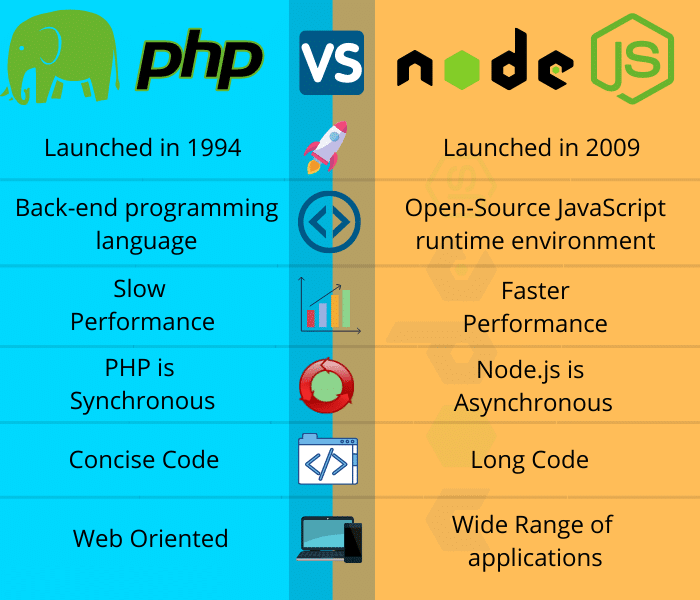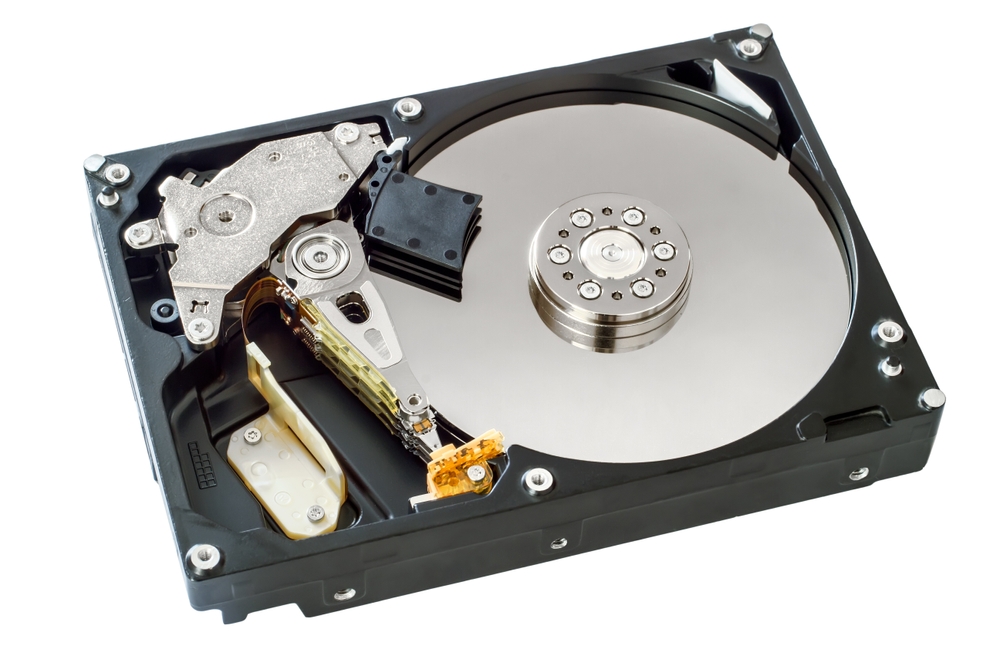When it comes to choosing a backend technology for web development, PHP and Node.js are two popular options, each with unique advantages. Understanding their strengths, performance factors, and compatibility can help developers make the best choice for their projects. In this article, we’ll dive deep into both languages, comparing them on key factors like performance, ease of use, community support, and scalability. Let’s discover whether PHP or Node.js is best suited for your next web project.
What is PHP?
PHP, short for “Hypertext Preprocessor,” is a server-side scripting language primarily designed for web development. Since its release in 1995, PHP has powered many of the internet’s most popular websites and remains widely used in content management systems (CMS) like WordPress, Drupal, and Joomla. It integrates well with HTML, making it a convenient choice for building web pages and applications.
Key Benefits of PHP:
- Simplicity and Ease of Use: PHP’s syntax is relatively easy for beginners to grasp, and it’s highly compatible with HTML.
- Large Community and Resources: PHP has a massive community, offering abundant resources, plugins, and frameworks like Laravel, CodeIgniter, and Symfony.
- Affordability: PHP hosting is generally cost-effective, as many affordable web hosting providers support PHP.
- Excellent CMS Support: PHP is the backbone of popular CMS platforms like WordPress, making it ideal for content-driven websites.
What is Node.js?
Node.js, introduced in 2009, is a JavaScript runtime built on Chrome’s V8 JavaScript engine. Unlike PHP, which is primarily used for server-side scripting, Node.js can handle both frontend and backend operations using JavaScript. This makes it a go-to choice for JavaScript developers seeking to work on both sides of a web application with a single language.
Key Benefits of Node.js:
- Unified Language: Node.js uses JavaScript, allowing developers to write both frontend and backend code in the same language.
- Event-Driven, Non-Blocking I/O: Node.js’s architecture enables it to handle multiple requests simultaneously, making it highly efficient.
- Fast and Scalable: Node.js is known for its speed, thanks to the V8 engine, and is ideal for building scalable applications.
- Strong Community and Modern Tools: Node.js has a thriving ecosystem with modern tools and libraries, including Express.js, making development fast and flexible.
PHP vs Node.js: Key Differences
When comparing PHP and Node.js, it’s essential to understand their distinctions across several categories.
1. Performance
- PHP: PHP operates on a synchronous, blocking I/O model, which can sometimes slow down high-demand applications. However, PHP 7 and later versions have introduced performance improvements that make PHP competitive for most web applications.
- Node.js: Node.js uses a non-blocking, asynchronous I/O model, which allows it to handle concurrent requests efficiently. This feature makes Node.js particularly suitable for applications requiring real-time updates, like chat applications and gaming platforms.
2. Scalability
- PHP: While PHP is scalable, it often requires additional solutions, like load balancing and caching layers, to handle high traffic effectively.
- Node.js: Node.js is naturally scalable, thanks to its event-driven architecture. It can handle multiple requests simultaneously and is ideal for microservices architectures where scalability is a primary concern.
3. Ease of Learning
- PHP: Known for its straightforward syntax and well-documented resources, PHP is a great starting point for new developers. The language’s stability and ease of use make it a beginner-friendly choice for web development.
- Node.js: Learning Node.js requires a good grasp of JavaScript, including asynchronous programming concepts, which can be a steep learning curve for some beginners.
4. Community Support
- PHP: With a long-standing history, PHP has an established community that provides excellent documentation, tutorials, and resources.
- Node.js: Although younger, Node.js has a vibrant and growing community, especially within the JavaScript ecosystem. Its popularity has led to extensive support and resources, especially in modern development.
5. Hosting Options and Server Compatibility
- PHP: PHP is compatible with most web servers, and affordable hosting solutions are widely available. Many providers offer packages specifically optimized for PHP applications.
- Node.js: Node.js hosting options are now growing, although they’re typically more specialized and can be pricier than traditional PHP hosting. However, cloud platforms like AWS, Google Cloud, and Heroku support Node.js, making it accessible for scalable deployments.
6. Development Speed and Flexibility
- PHP: With well-developed frameworks like Laravel, Symfony, and CodeIgniter, PHP provides developers with tools to build applications quickly. These frameworks simplify repetitive tasks and offer libraries that reduce development time.
- Node.js: Node.js frameworks like Express.js, Koa.js, and Nest.js enable fast and flexible development. Additionally, the ability to use JavaScript across the full stack allows for smoother communication between frontend and backend teams.
Use Cases: PHP vs Node.js
When to Use PHP
PHP is well-suited for:
- Content-Heavy Websites: CMS platforms like WordPress, Drupal, and Joomla are PHP-based, making it ideal for content-driven sites.
- E-commerce Sites: Platforms like Magento and WooCommerce use PHP, providing robust tools for building and managing online stores.
- Small to Medium Applications: PHP’s simplicity and widespread support make it a cost-effective choice for smaller applications.
When to Use Node.js
Node.js is ideal for:
- Real-Time Applications: Apps that need to manage multiple connections simultaneously, such as chat applications, gaming platforms, or collaboration tools.
- Single-Page Applications (SPAs): SPAs like Trello and Gmail benefit from Node.js’s ability to handle asynchronous requests efficiently.
- IoT Applications: Node.js works well for IoT devices due to its non-blocking nature and compatibility with various data exchange formats.
Choosing the Right Technology for Your Project
When deciding between PHP and Node.js for your project, it’s essential to consider the specific needs of your application:
- Project Size and Budget: PHP is often more affordable for smaller projects, while Node.js is typically preferred for larger applications requiring scalability and high performance.
- Developer Expertise: PHP is beginner-friendly and has a straightforward learning curve, while Node.js can leverage full-stack JavaScript developers.
- Real-Time Needs: Applications needing real-time updates, like messaging and gaming apps, may benefit more from Node.js’s non-blocking I/O model.
Conclusion
Both PHP and Node.js are powerful backend technologies with unique advantages, and choosing between them depends on the specific needs of your project. PHP remains a solid choice for traditional web applications, content-driven sites, and e-commerce, thanks to its ease of use and affordability. On the other hand, Node.js excels in real-time applications, scalability, and the convenience of using a single language across the full stack. Ultimately, understanding these technologies’ strengths and aligning them with your project’s requirements will help you make an informed decision.




